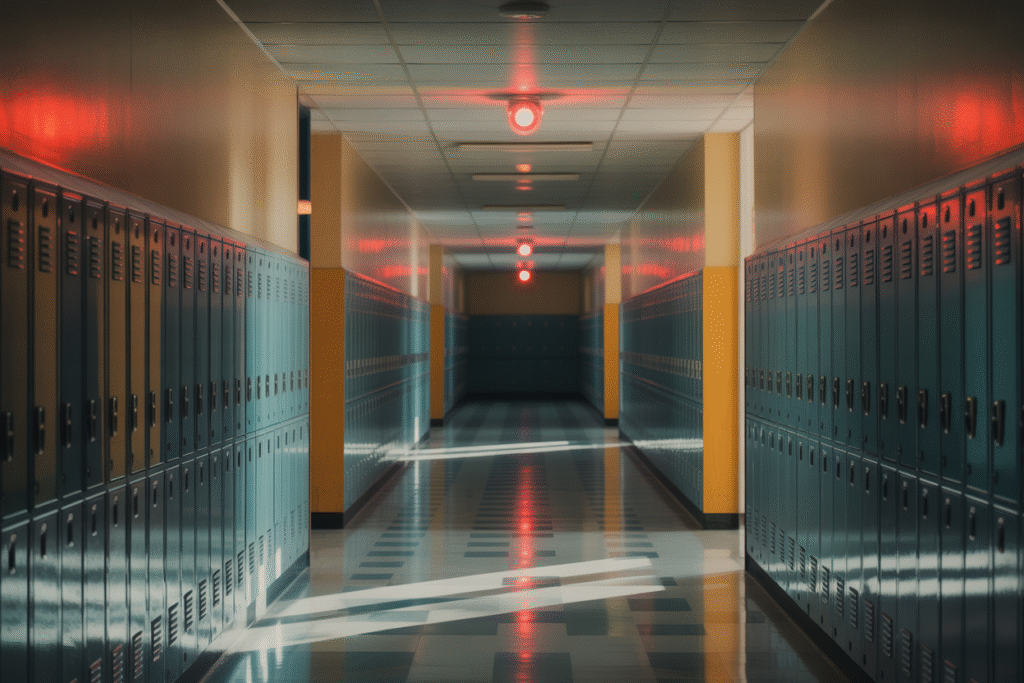A 13-year-old’s joke triggered an AI surveillance alert, leading to arrest and solitary confinement—igniting a national firestorm over privacy, safety, and the ethics of algorithmic policing in schools.
Picture this: a 13-year-old girl jokes with friends about her tan, then spends the next 24 hours in solitary confinement—all because an algorithm didn’t get the punchline. Welcome to the new frontier of AI surveillance in schools, where a single misunderstood text can trigger police, strip searches, and national outrage. In the last 24 hours, the story of a Tennessee eighth-grader has exploded across social media, reigniting fierce debate over privacy, safety, and the ethics of letting machines police our kids. If you care about where AI is headed—and who gets hurt along the way—this is the conversation you can’t ignore.
When the Algorithm Calls the Cops
Picture this: a 13-year-old girl jokes with friends about her tan, then spends the next 24 hours in solitary confinement—all because an algorithm didn’t get the punchline. Welcome to the new frontier of AI surveillance in schools, where a single misunderstood text can trigger police, strip searches, and national outrage. In the last 24 hours, the story of a Tennessee eighth-grader has exploded across social media, reigniting fierce debate over privacy, safety, and the ethics of letting machines police our kids. If you care about where AI is headed—and who gets hurt along the way—this is the conversation you can’t ignore.
Inside the Tennessee Firestorm
It started with a meme. The girl, a student at Fairview Middle School, typed a tongue-in-cheek reply to friends teasing her about her tan: “on Thursday we kill all the Mexico’s.” The misspelling and exaggerated tone were obvious jokes to human eyes, but Gaggle—an AI surveillance platform used by the school—flagged it as a credible threat against Mexicans. Within minutes, school officials contacted police. Officers arrested the 13-year-old, subjected her to a strip search, and placed her in solitary confinement for a full day. She later faced eight weeks of house arrest, mandatory psychological evaluation, and transfer to an alternative school. Her parents, meanwhile, were hit with truancy charges while frantically searching for their daughter.
The details read like dystopian fiction, yet every line is documented. The incident, reported August 11, 2025, has already racked up millions of views and thousands of shares, with hashtags like #AIWatch and #FreeTheTennessee8 trending worldwide. Critics point to Gaggle’s own data: an Associated Press analysis found the system produces false positives up to 70 percent of the time. In other words, seven out of ten alerts are mistakes—mistakes that can destroy a child’s life.
The Hidden Cost of Safety Theater
Why does this matter beyond one horrifying headline? Because AI surveillance in schools is exploding. Districts across the U.S. are quietly installing tools like Gaggle, Bark, and Securly to scan everything from emails to Google Docs for “risky” language. Proponents argue the software catches everything from self-harm signals to mass-shooting threats. But the Tennessee case exposes the flip side: over-policing harmless speech, racial bias baked into algorithms, and a chilling effect on student expression.
Consider the stakes:
• Privacy: Kids lose the freedom to joke, vent, or experiment with ideas online.
• Equity: Studies show AI flags Black and Latino students at higher rates.
• Mental health: False accusations can traumatize teens already navigating stress.
• Accountability: When an algorithm errs, who takes responsibility—the software company, the school, or the police?
The debate isn’t theoretical. Parents are suing districts. Students are organizing walkouts. Lawmakers are drafting bills to regulate or ban AI monitoring altogether. Meanwhile, tech companies keep marketing these tools as silver bullets for school safety, often without transparent audits or opt-out options.
From Outrage to Action
So what happens next? The Tennessee girl’s family is pursuing legal action, and civil-rights groups are calling for an immediate moratorium on AI surveillance in schools until strict oversight rules are in place. Some districts are already pausing contracts, citing public backlash and budget concerns. Others double down, arguing that one tragic mistake shouldn’t outweigh potential lives saved. The standoff raises urgent questions for parents, educators, and policymakers alike.
If you’re a parent, ask your school board what tools they use and how they handle false positives. If you’re an educator, push for human review before any disciplinary action. And if you’re simply a citizen watching the AI revolution unfold, remember this: every algorithmic decision is still a human choice—one we can question, challenge, and change. Speak up at school meetings, share verified stories, and demand transparency. The next alert could target your child, your student, or you. Silence isn’t safety—it’s surrender.


